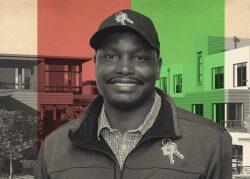Two historically Black churches in Berkeley plan to build more than 130 affordable housing units on their properties, the latest step by such institutions to allow residents to keep living in an area where prices have surged.
St. Paul African Methodist Episcopal Church and Ephesian Church of God in Christ formed partnerships with the city and Community Housing Development Corporation for a 52- and an 82-unit project, according to Berkeleyside. They’re set to break ground this summer and are part of a discussion about gentrification and housing segregation in Berkeley, the news site said.
The larger one will convert an empty building and a parking lot on Ephesian church grounds at 1708 Harmon Street into housing for seniors earning between 33 and 60 percent of the local median income, or between about $31,000 and $57,540, Berkeleyside said. St. Paul’s project at 2024 Ashby Avenue involves razing a multi-purpose room and parking lot for a complex targeted toward households earning between 30 and 60 percent of the local median income.
The projects are located in a part of South Berkeley surrounding the Ashby BART station that’s home to Black churches and neighborhood institutions whose congregations have been priced out of the area and nearby North Oakland. They’re joining two other churches that agreed with the city to build new homes on their properties in the last few years.
One of them broke ground in 2020 on North Berkeley’s first affordable housing project in almost 30 years. That one, developed by All Souls Episcopal Parish, consists of 34 units for seniors making between 20 and 60 percent of the local median income, Berkeleyside said. Residents have started moving into it on a weekly basis, property manager Sam Fikiri told the news site.
Adding even just one unit to the overall housing stock would help alleviate the burden on shelters and transitional housing, the Reverend Anthony Hughes of St. Paul told Berkeleyside. His church has a moral obligation to contribute to larger efforts to end the region’s housing crisis, he said.
“Something has to be done so that we get back to the idea that housing is a right, rather than a privilege,” Hughes said. St. Paul’s congregation overwhelmingly supported building more than 50 housing units on church property, even though it requires demolishing a worship center that hosts wedding ceremonies and birthday parties, among other events, he said.
[Berkeleyside] — Matthew Niksa
Read more

